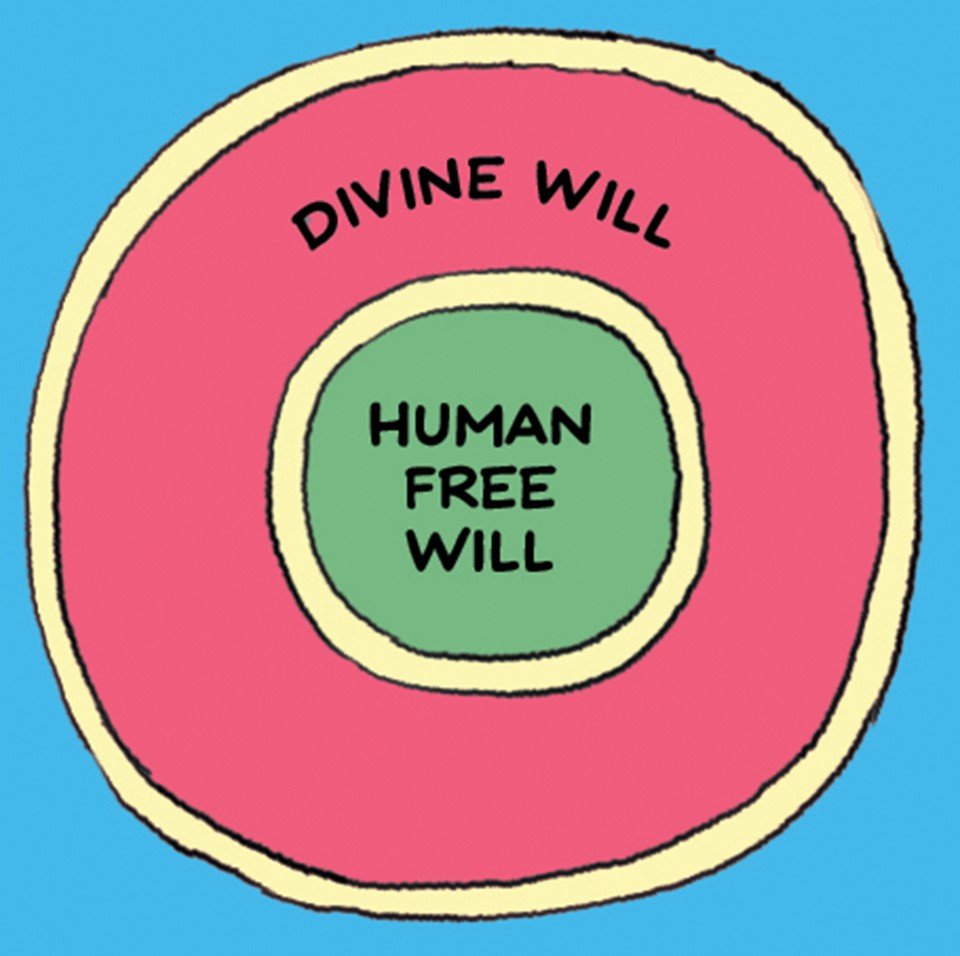
I remember the time I was myself for my college final exams.
As I frantically reviewed my notes, I couldn't shake the feeling that I was going to perform poorly. The subject matter seemed overwhelming, and I felt like I couldn't grasp the key concepts.
In the midst of my self-doubt, a thought suddenly struck me:
"If everything is predestined, then my studying is futile. The outcome is already determined. But if I have free will, then I'm responsible for my own success or failure. Which is it?"
I laughed at the idea of wrestling with such a deep question right before a big exam.
But the more I considered it, the more I realized that the relationship between free will and Divine Will wasn't just some abstract concept.
It had real implications for how I approached this exam and other challenges in my life.
The following Sufi Comic is about the relationship between Freewill and Divine Will:

The Quran itself contains verses that seem to point to both divine predestination and human choice. For instance:
"Say: 'I have no power over any good or harm to myself except as God wills.'" (7:188)
"Say, 'Nothing will ever befall us except what Allah has destined for us. He is our Protector.'" (9:51)
Yet at the same time, the Quran repeatedly emphasizes moral responsibility and the consequences of our actions.
"Every soul will be [held] in pledge for what it has earned." (74:38)
"Whoever does righteousness - it is for his [own] soul; and whoever does evil [does so] against it.” (41:46)
So how do we reconcile these seemingly opposing ideas?
These verses look opposing when we think of Divine will operating independently of human free will.
However it begins to make sense when we see our free will operating within the larger context of divine will, much like a fish swimming freely within the boundaries of the ocean.

In other words, our choices are real and meaningful, but they are always encompassed by God's ultimate will and plan.
Imam Ali expressed it this way: "Man's free will depends on God's free will, which is independent." It’s worth reading it again.
This understanding has significant implications for how we approach our daily lives:
1. Responsibility with Surrender: Recognizing that our choices are nested within divine will empowers us to make decisions with sincerity and effort, while also cultivating a deep trust in God's ultimate plan.
2. Finding Purpose in Challenges: When we view our circumstances as part of a larger divine plan, we can find meaning and growth opportunities even in life's difficulties. Every situation becomes a chance to align our will with God's will.
3. Cultivating Virtues: Knowing that our choices have real consequences while also being part of God's plan encourages us to cultivate virtues like wisdom, compassion, and justice. We strive to make choices that are in harmony with divine attributes.
By recognizing the relationship between free will and divine will, we can find greater purpose, meaning, and peace in the face of life's challenges.
Más info en https://ift.tt/Xp8igoz / Tfno. & WA 607725547 Centro MENADEL (Frasco Martín) Psicología Clínica y Tradicional en Mijas. #Menadel #Psicología #Clínica #Tradicional #MijasPueblo
*No suscribimos necesariamente las opiniones o artículos aquí compartidos. No todo es lo que parece.

No hay comentarios:
Publicar un comentario